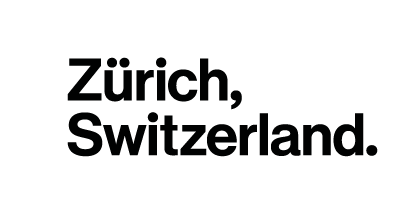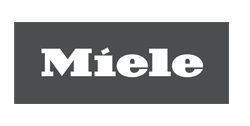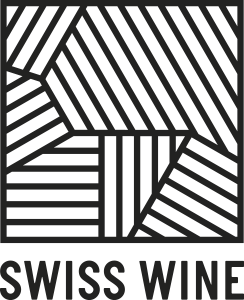„Jeden Sonntagabend ein neues veganes Rezept probieren“
Wie kann man sich als Stadtzürcher*in gesund und nachhaltig ernähren?
Gut für Klima, Umwelt und Gesundheit ist eine abwechslungsreiche Ernährung auf Basis pflanzlicher Produkte: also viel Früchte und Gemüse, variierende Kohlenhydratquellen wie zum Beispiel Kartoffeln, Reis oder Pasta, bevorzugt in der Bio- oder Vollkornvariante. Den Proteinbedarf decken wir mit einem massvollen Fleischkonsum circa zwei- bis dreimal die Woche und verschiedenen pflanzlichen Proteinen. Lieber öfter zu pflanzlichen Fetten und Nüssen greifen, als zu tierischen Fetten, Süssem und Salzigem.
Wenn ich in Zürich nachhaltig einkaufen will, auf welche drei Tipps kann ich achten?
Wenn man Saisonprodukte aus der Region kauft, garantiert dies kurze Transportwege ohne Flugtransporte und man unterstützt unser lokales Ernährungssystem. Zudem werden Gewächshäuser, welche mit fossilen Brennstoffen beheizt werden, vermieden. Auf den 11x wöchentlich stattfinden Märkten lässt sich das besonders gut erleben.
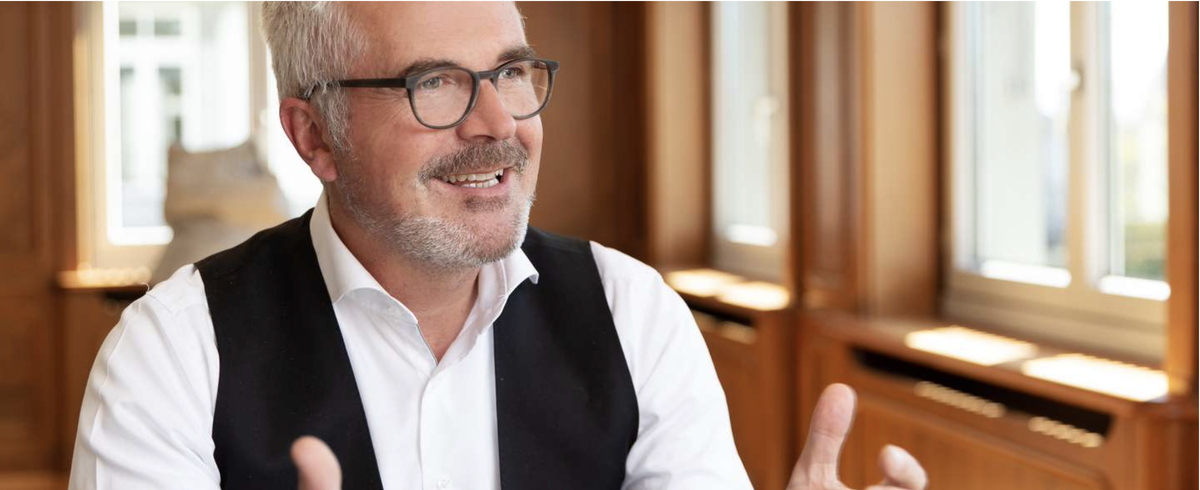
Auf welche Labels können wir beim Einkaufen achten
Zugegeben, es ist schwer zu erkennen, welches Label wirklich nachhaltig ist. Vertiefte, unabhängige Informationen findet man zum Beispiel auf www.labelinfo.ch. Die dort empfohlenen Labels helfen einem dabei, umwelt- und sozialverträgliche Produkte ausfindig zu machen. Ein glaubwürdiges und etabliertes Label ist die Bio Knospe. Biobetriebe haben zum Beispiel eine 30% höhere Artenvielfalt als konventionelle Landwirtschaftsbetriebe. Aber auch IP Suisse Produkte oder MSC/ASC für Fische gelten als empfehlenswert. Bei exotischen Produkten wie Tee, Kaffee, Schokolade oder Früchten sind zusätzlich Fairtrade-Labels wichtig (z.B. Max Havelaar). Schliesslich bedeutet nachhaltig einkaufen auch nicht zu viel einzukaufen, wodurch wir Food Waste vermeiden können.
Wie sieht es mit einem Herkunftsausweis oder einem Ampelsystem für Lebensmittel aus? Wann sehen wir das in unseren Läden?
Vor Kurzem hat die Migros eine Klima- und Tierwohl-Skala lanciert. Man sieht das also schon sehr bald in den Läden. Lebensmittellabel oder auch Ampelsysteme sind komplex. Bisher fehlt ein gemeinsamer, verbindlicher Standard wie eine Klima-Ampel. Von einem national koordinierten, abgestimmten Vorgehen versprechen wir uns die grösstmögliche Transparenz. Deswegen planen wir auch kein Züri-spezifisches Label nur für unsere Stadt.
Oftmals heisst es, gesunde Lebensmittel seien teurer als ungesunde. Stimmt das?
Das ist glücklicherweise nicht so. Eine Untersuchung der Hochschule für Agrar-, Forst- und Lebensmittelwissenschaften HAFL hat gezeigt, dass ein gesunder, ausgewogener Warenkorb mit Frischprodukten nur wenig mehr kostet als das ungesunde Pendant. Am teuersten ist es, wenn man sich gesund ernährt und dabei auf mehrere Fertig- und Halbfertigprodukten setzt. Wobei diese Kosten immer noch unter den durchschnittlichen Ausgaben für Lebensmittel eines Paarhaushalt mit niedrigem Einkommen liegen. Generell gilt: Obst, Gemüse, pflanzliche Proteinquellen wie Hülsenfrüchte sowie Kohlenhydratquellen wie Reis, Pasta oder Kartoffeln sind im Schnitt günstiger als Fleisch und tierische Produkte. Zudem sind frische Nahrungsmittel und saisonale Produkte preiswerter als Fertigprodukte.
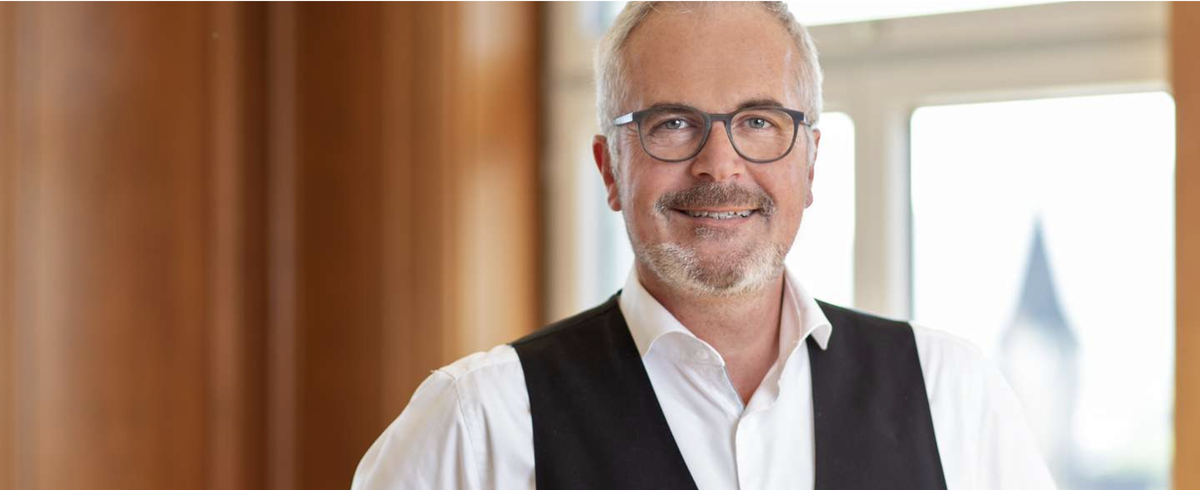
Die Schweiz hat aktuell einen Selbstversorgungsgrad von 48% – wie kann man diesen erhöhen und warum würde das Sinn machen?
Einen höheren Selbstversorgungsgrad böte uns mehr Transparenz und eine höhere Resilienz, wenn globale Warenströme ins Stocken kommen. Ein Szenario, welches wir letztes Jahr alle miterlebt haben. Es ist aber nicht unser Ziel, alle Importe zu eliminieren. Es gibt auch eine ganze Reihe von Produkten, welche bei uns nur erschwert oder gar nicht produziert werden können, z.B. Südfrüchte oder Kaffee. Es bleibt also wichtig, die gesamte Produktionskette – auch ausserhalb der Stadt- und Landesgrenze -zu betrachten.
Corona setzt vielen Menschen zu. Wie schafft man es trotzdem, sich weiterhin auch auf nachhaltige Ernährung zu konzentrieren?
Das Schöne am Thema ist: wir haben dreimal täglich die Möglichkeit, nachhaltiger zu werden. Gerade jetzt, wo man sich mehr zu Hause verpflegt, ist ein optimaler Zeitpunkt. Das haben viele Personen auch gemacht, so ist der Absatz bei der Direktvermarktung, über Märkte und von Bioprodukten stark gestiegen. Die Menschen backen und machen mehr selber. Am besten gelingt es, wenn man sich konkrete, machbare Ziele setzt und nach und nach ausbaut. Zum Beispiel kann man sich vornehmen, jeden Sonntagabend ein neues veganes Rezept auszuprobieren. Oder Sie optimieren ihre Einkaufsroutine und vermeiden dadurch Lebensmittelverluste. Sie könnten sich auch ganz konkret nach nachhaltigen Alternativen umsehen und beginnen mit einer Warengruppe, z.B. Fisch. Weiter Fortgeschrittene stellen z.B. ihr Sommer-Grill-Sortiment um, da ist das Angebot an Alternativen in den letzten Jahren ja förmlich explodiert. So finden Sie neue Gewohnheiten und weiten sie nach und nach aus.
Müssen wir Zürcher*innen verzichten, um uns nachhaltiger zu ernähren? Wo bleibt der Genuss?
Genuss ist die Voraussetzung. Uns ist in erster Linie wichtig zu zeigen, was die Auswirkungen unserer Ernährung sind und welche Möglichkeiten jeder und jede hat, um zu einer Verbesserung beizutragen. Wir möchten die Bevölkerung ansprechen und aktivieren, aber nicht bevormunden. Gesund und umweltschonend essen ist genussvoll. Probieren Sie es aus!
Bilder von Andreas Hauri: Giorgia Müller
Info Box
So wird Zürich nachhaltiger
Was wir essen, beeinflusst unsere Gesundheit und unsere Umwelt. Unsere Ernährung verursacht ein Drittel der Umweltbelastung und 20 Prozent der Treibhausgasemissionen unserer konsumierten Güter. Zürich hat deshalb eine Strategie für eine nachhaltigere Ernährung erarbeitet . Die Stadt will eine Vorbildrolle einnehmen (etwa bei ihren rund 450 städtischen Verpflegungsbetrieben), nachhaltigere Beschaffungskriterien in der gesamten Wertschöpfungskette schaffen (etwa die Zusammenarbeit mit regionalen Akteur*innen fördern) und eine nachhaltige Ernährung allen zugänglich machen (zum Beispiel durch das Informieren der Öffentlichkeit über die Auswirkungen der Ernährung auf das Klima).
Um diese Ziele zu erreichen, stützt sich die Stadt Zürich auf fünf Pfeiler:
- Regionale Produktion und Verteilung fördern: Die Stadt fördert Bauernhöfe, Kleingärten, Hofläden, Schüler*innen-Gärten und Grünflächen. So bringt sie der Bevölkerung die Vielfalt der hier angebauten Lebensmittel näher und schärft das Bewusstsein für die Zusammenhänge zwischen Ernährung, Gesundheit, Natur und Umwelt.
- Beschaffung und Verpflegung: Die 450 städtischen Verpflegungsbetriebe stellen pro Jahr rund 7 Millionen Menüs bereit. Gemeinsam können sie zum Wohle der Umwelt einiges bewegen. Die Stadt Zürich plant Workshops für Vertreter*innen der städtischen Verpflegungsbetriebe, will Portionengrössen anpassen, arbeitet mit Too Good To Go für Alterszentren zusammen, arbeitet am Projekt Labelflagge um nachhaltige Produkte zu kennzeichnen und bietet in ihren Betrieben vermehrt ausgewogene Menus an.
- Lebensmittelverluste und Entsorgung: Die Stadt will in eigenen Betrieben, aber auch bei privaten Veranstaltern weniger Lebensmittel verschwenden. Die Idee: das Bewusstsein in Workshops für das Personal stärken und gezielte Verbesserungsmassnahmen einführen (z.B. kleinere Portionen und auf Wunsch einen Nachschlag servieren, Zusammenarbeit mit Too Good To Go, Kampagne Save Food Fight Waste bekannt machen).
- Information und Bildung: Die Bildung für Nachhaltige Entwicklung’ geniesst im Lehrplan 21 einen hohen Stellenwert: Das Thema Ernährung wird im Hauswirtschaftsunterricht, in den 82 Schul- und Schülergärten und in weiteren Fächern näher beleuchtet. Fachpersonen sollen sich neu zu den Themen ökologische und gesunde Ernährung weiterbilden können. Zudem baut die Stadt Naturschulangebote weiter aus.
- Kooperation und Monitoring: Mittels Kooperationen will die Stadt Zürich Wissen austauschen, Synergien nutzen und erfolgreiche Modelle breiter anwenden. Um die Fortschritte zu messen, wird ein Monitoring mit aussagekräftigen Kennzahlen aufgebaut, unter anderem in Zusammenarbeit mit dem Ernährungsforum Zürich oder der ZHAW.
Hier gibt's von der Stadt Zürich konkrete Tipps, was wir tun können, um uns nachhaltiger zu ernähren.
Mehr Infos zur Handlungsstrategie der Stadt Zürich gibt’s hier.


